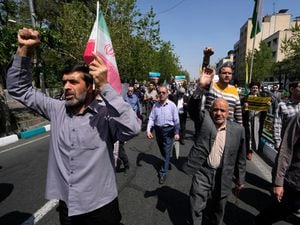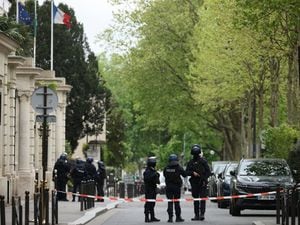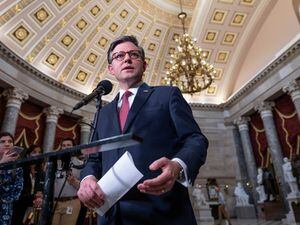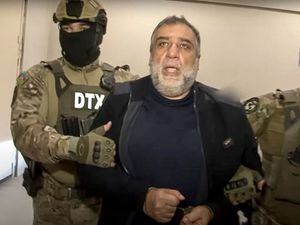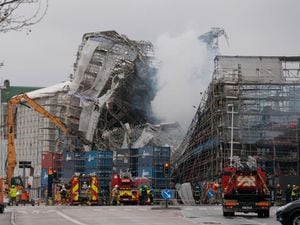Black Panther Saudi Arabia screening is popcorn moment for film fans
The kingdom says there will be 300 cinemas built by 2030.
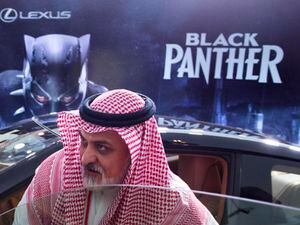
Saudi Arabia held a private screening of the Hollywood blockbuster Black Panther to herald the launch of cinemas in the kingdom.
Tickets go on sale on Thursday for public showings on Friday.
Authorities staged the invitation-only event in a concert hall converted into a cinema complex in the capital, Riyadh.
The screening, attended by both men and women, will be followed by a rush to build cinemas in major cities.

Audience members clearly enjoyed the moment, eating popcorn and erupting into applause when the film started.
“This is a landmark moment in the transformation of Saudi Arabia into a more vibrant economy and society,” Saudi Minister of Culture and Information Awwad Alawwad said before the screening.
It is a major U-turn for a county where public movie screenings were banned in the 1980s during a wave of ultraconservatism that swept Saudi Arabia.
Many Saudi clerics view Western movies and even Arabic films made in Egypt and Lebanon as sinful.
Despite decades of ultraconservative dogma, Crown Prince Mohammed bin Salman has sought to ram through a number of major social reforms with support from his father, King Salman.
The crown prince is behind measures such as lifting a ban on women driving that will go into effect this summer, and bringing back concerts and other forms of entertainment desired by the country’s majority young population.

The Saudi government projects that the opening of movie theatres will contribute more than 90 billion riyals (£17 billion) to the economy and create more than 30,000 jobs by 2030.
The kingdom says there will be 300 cinemas with around 2,000 screens built by 2030.
Over the past few years, Saudi Arabia has gradually been loosening restrictions on movie screenings, with local film festivals and screenings in makeshift theatres.
For the most part, though, Saudis who wanted to watch a film in a cinema would have to drive to nearby Bahrain or the United Arab Emirates.
In the 1970s, there were informal film screenings but the experience could be interrupted by the country’s religious police, whose powers have since been curbed.
By the 1980s, movie screenings were largely banned unless they took place in private residential compounds for foreigners or at cultural centres run by foreign embassies.
Access to streaming services, such as Netflix, and satellite TV steadily eroded attempts by the government to censor what the Saudi public could view.
By 2013, the film Wadjda made history by becoming the first Academy Award entry for Saudi Arabia.

Scenes of violence are not cut, but scenes involving nudity, sex or even kissing often do get axed.
It was not clear whether Black Panther was censored for Wednesday’s screening, which was attended by diplomats, industry insiders, the press and the chief executive of AMC Entertainment, Adam Aron.
US-based AMC was granted the first licence to operate a cinema in Saudi Arabia in a deal signed earlier this month in California with the crown prince.
AMC is working with a subsidiary of Saudi Arabia’s sovereign wealth fund, known as the Public Investment Fund, to build up to 40 AMC cinemas across the country over the next five years.

